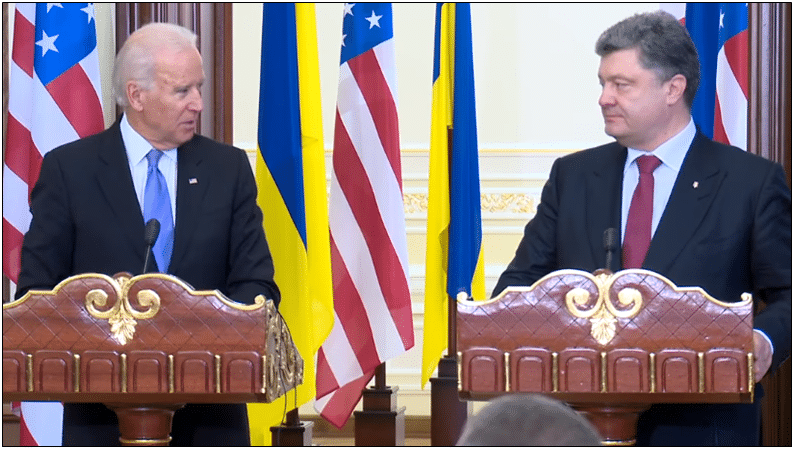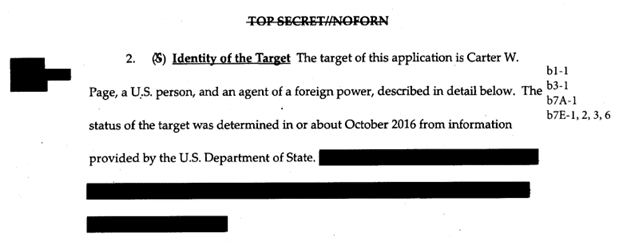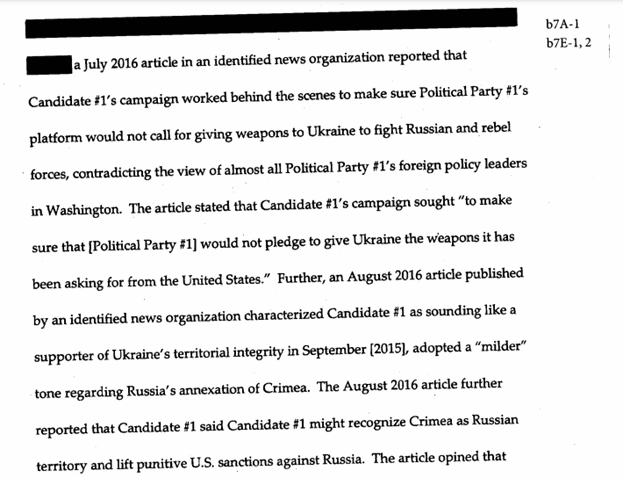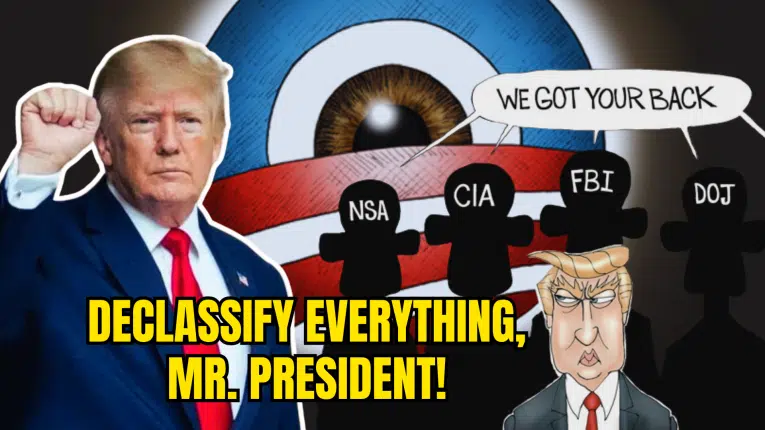On Nov. 23, the American people learned further information about what had already been reported, that in 2022, there was a potential for peace talks between Ukraine and Russia, predicated on a push by Moscow for Kiev to declare neutrality and promise not to join NATO, but the talks were rejected.
According to the Ukrainska Pravda report in November, “Davyd Arakhamiia, leader of the Servant of the People faction who led the Ukrainian delegation at “peace” talks with the Russians in Belarus and Türkiye in 2022, said that the Russian delegation promised Kyiv peace in exchange for refusing to join NATO, but the Ukrainians did not believe them.”
This had come on the heels of a Feb. 2023 New York Times report by Michael Crowley that after the war began, and the Ukrainian counteroffensive was floundering, potential peace talks or a ceasefire were “squelched” by President Joe Biden: “pro-negotiation efforts in Western governments have gained little traction. After progressive Democrats released a public letter in late October calling on President Biden to seek a ‘rapid end to the conflict,’ the group’s leader quickly retracted it. Around the same time, the chairman of the Joint Chiefs of Staff, Gen. Mark A. Milley, argued in internal meetings that Ukraine was unlikely to make substantially greater battlefield gains and should move to the bargaining table. The White House quickly squelched such talk.”
In March 2023, Pentagon spokesperson John Kirby said any “call for a ceasefire” in Ukraine was “unacceptable”.
Just yesterday, on Dec. 14, Russian President Vladimir Putin acknowledged the abortive peace talks in 2022 and stated there would be no peace until Moscow had completed its objectives, saying, “there will be peace when we achieve our goals…” Putin also called for “demilitarization” of Ukraine either through talks or through force, stating, “we can agree on demilitarization and establish certain parameters. We actually agreed on them during the Istanbul talks, although these agreements were thrown out later, but we managed to reach agreement. There are also other possibilities to either reach an agreement or resolve the conflict by force.” In short, Russia thinks it’s winning the war, so why would it unilaterally stop?
At every step of the way, attempts to halt the conflict — so far — have failed. Looking back, it is hard in hindsight not to see that the path to war was simultaneously predictable, avoidable and inevitable.
Thus, if anyone is reading this hundreds of years from now, wondering why and how humanity managed to incinerate itself after the world’s two powers with thousands of nuclear weapons pointed at one another stopped talking, one might look no further than the Foreign Intelligence Surveillance Act (FISA) warrant against a little know Trump campaign advisor in Oct. 2016, Carter Page.
This was when former President Barack Obama, the Justice Department and Congress condoned the use of FISA against a presidential campaign, the opposition party led by former President Donald Trump, in an election year on made-up charges the candidate was a Russian agent because his opponent and the incumbent party disagreed with his take on the Ukraine civil war.
The FISA warrant application stated: “The target of this application is Carter W. Page, a U.S. person, and an agent of a foreign power… The status of the target was determined in or about October 2016 from information provided by the U.S. State Department…”
Those allegations infamously relied on the Clinton campaign and DNC-financed Christopher Steele dossier that there was a “well-developed conspiracy” by Russia and the Trump campaign to hack the DNC and John Podesta and give their emails to Wikileaks.
But it was Trump’s anti-war stance that truly predicated the surveillance, with the Justice Department complaining to the Foreign Intelligence Surveillance Court that Trump allegedly “[made] sure [the GOP] platform would not call for giving weapons to Ukraine to fight Russian and rebel forces” and that he “might recognize Crimea as Russian territory and lift punitive U.S. sanctions against Russia” citing news reports as the Justice Department used an Aug. 2016 Politico story highlighting Trump’s positions on Ukraine, including his suggestion the people of Crimea preferred to live in Russia, and his doubts that the territories Russia had seized could be reclaimed without World War III.
At an Aug. 2016 Columbus, Ohio rally, Politico quoted Trump saying a military conflict to take back Crimea would risk nuclear war: “You wanna go back? …You want to have World War III to get it back?”
And the FISA warrant application quoted Trump on ABC’s “This Week” on July 31, 2016 suggesting the people of Crimea supported Russian annexation: “The people of Crimea, from what I’ve heard, would rather be with Russia than where they were.”
The rest as it is said is history. Because Trump ran as an anti-war candidate, his chosen National Security Advisor Michael Flynn was politically decapitated within a month of taking office in 2017.
The now-released transcripts of Flynn’s phone calls with Russian Ambassador Sergei Kislyak on Dec. 23, 2016, Dec. 29, 2016 and Dec. 31, 2016 confirm that Flynn was engaging with Kislyak to stop a dangerous escalation in U.S.-Russian relations from occurring during the transition.
The investigation into whether Flynn was a Russian agent had been closed on Jan. 3, 2017, only to be reopened by Strzok based on the intercepted conversations between Flynn and Kislyak. This came at the time the Obama administration was levying sanctions against Russia and expelling many Russian diplomats from the U.S.
Flynn told Kislyak on Dec. 29, 2016 that “we need cool heads to prevail” and advised that Moscow only respond in a “reciprocal” fashion. By Dec. 31, 2016, Kislyak had reported that Moscow had received Flynn’s message and would only respond in reciprocal fashion.
Flynn had also proposed improving U.S.-Russia relations, appearing in the Steele dossier because of his speaking engagement, which was really an interview led by a Russian reporter, Sophie Shevardnadze, in a public forum, at the Russia Today 10-year anniversary in Moscow in Dec. 2015. Steele wrote in Aug. 2016: “Kremlin engaging with several high profile U.S. players, including… former DIA Director Michael Flynn… and funding their recent visits to Moscow.”
Flynn was there to sell the idea that the U.S. and Russia had a common enemy in Islamic State and more broadly radical Islam, a proposal candidate Trump would adopt in 2016.
Flynn stated, “This back and forth, and I do appreciate it… and I respect it, because we have to have this debate, we absolutely have to have this debate, and we have to have it now. And we can’t—the United States—and I’m speaking as a really a private citizen—the United States can’t sit there and go, Russia, you’re bad, and Russia can’t sit there and say, the U.S., you’re bad. What we have to do, like we have done in the past, and I could go into a couple of historical examples where Europe would not be the Europe that it is today, thriving, had it not been for Russia and the United States working together 75 years ago, and in other places [is] where we have worked together. So, this idea of us not being able to work together is a misnomer, and I think we have to step back and we have to say, okay, what are the common interests, and then, what are the common goals that we want to achieve, and those goals I believe the number one goal is to… eliminate the cancerous idea that exists inside of the Islamic religion, we must do that.”
On how to generate trust between the two countries, Flynn flatly stated, “Stop being like two bullies in a playground. Quit acting immature… with each other and know that I have… a disagreement with you, you have a disagreement with me. You know, this is a funny marriage between Russia and the United States, but it’s a marriage… whether we like it or not. And, that marriage is very, very rocky right now, and what we don’t need is we don’t need that marriage to break up. We’ve had our break ups in the past, but we need to… look at this, I mean, I’m deadly serious about this, because I know this enemy… and I think there’s some in this country that know this enemy from having dealt with it in Chechnya and Dagestan and other places. This is a very, very deadly enemy.”
Finishing out his interview, Flynn expressed hope that his idea for cooperation would be accepted in both Washington, D.C. and Moscow to defeat their common enemy and to avoid a larger conflict: “My wish and my hope is that we figure out a way strategically to work together, I think that that’s the way ahead. Whether or not we work together 20 years from now, I don’t know, but I know if we don’t work together right now, the potential for going to a larger conflict against each other or the potential for this enemy to do far more damage than they already have is very, very real.”
In 2016, Paul Manafort was Trump’s campaign chairman and removed by Trump after the NYT ran an erroneous hit piece in Aug. 2016 about a supposed “black ledger” from Manafort’s time as the campaign manager of deposed former Ukrainian President Viktor Yanukovych in 2010.
Carter Page was similarly removed from the campaign when a Sept. 2016 Yahoo! News story appeared alleging, falsely as it turned out, he was a Russian agent, which was circularly used in the FISA warrant application.
Ultimately, former Special Counsel Robert Mueller found in July 2019 there was no Trump campaign conspiracy with Russia to hack the DNC and give the emails to Wikileaks.
According to Mueller’s final report to the Attorney General, “the evidence was not sufficient to charge that any member of the Trump Campaign conspired or coordinated with representatives of the Russian government to interfere in the 2016 election.”
Mueller stated “the Office did not find evidence likely to prove beyond a reasonable doubt that Campaign officials such as Paul Manafort, George Papadopoulos, and Carter Page acted as agents of the Russian government — or at its direction, control or request…”
Manafort was brought up on unrelated tax and bank fraud charges and convicted in 2018 but ultimately pardoned by former President Trump in 2020.
As for Michael Cohen, per the Mueller report, “Cohen had never traveled to Prague…” and so couldn’t have been meeting with Russian intel. We knew that as early as Jan. 2017 when Buzzfeed published the dossier and Cohen showed his passport.
As for Carter Page, he was never charged with anything.
The civil war in Ukraine that began in 2014 actually started out as a policy disagreement over a pair of competing trade agreements with the European Union and Russia, at least, that’s the story former Vice President Joe Biden tells in his book, “Promise Me, Dad: A Year of Hope, Hardship, and Purpose,” published in 2017.
“A popular demonstration,” Biden wrote, “which started at a square in Kyiv in late 2013, when President Viktor Yanukovych reneged on his promise to take the country into the European Union, had grown from a spontaneous eruption to a real political movement — one President Yanukovych mishandled badly.”
Here, Biden is referring to the pro-Europe, anti-Russia trade agreement, the Ukraine–European Union Association Agreement. It was a trade deal Yanukovych’s then-adviser Paul Manafort had advised him to adopt, but in 2013, he rejected Manafort’s advice, pulling out of the deal. What followed was a revolution in Ukraine that ultimately ousted Yanukovych from power in 2014, embroiling Ukraine in civil war that led directly to the annexation of Crimea by Russia and several separatist uprisings in eastern Ukraine. Yanukovych then fled to Russia on Feb. 22, 2014, and the trade deal was signed in March 2014 by interim Prime Minister Arseniy Yatsenyuk.
By Biden’s account, it was his pressure that prompted Yanukovych to flee: “I made the last of many urgent calls to Yanukovych in late February of 2014, when his snipers were assassinating Ukrainian citizens by the dozens and we had credible reports that he was contemplating an even more vicious crackdown. I had been warning him for months to exercise restraint in dealing with his citizens, but on this night, three months into the demonstrations, I was telling him it was over; time for him to call off his gunmen and walk away. His only real supporters were his political patrons and his operators in the Kremlin, I reminded him, and he shouldn’t expect his Russian friends to rescue him from this disaster. Yanukovych had lost the confidence of the Ukrainian people, I said, and he was going to be judged harshly by history if he kept killing them. The disgraced president fled Ukraine the next day…”
The so-called “red phone” to Moscow, critical for deconflicting at senior levels, had its line cut at the most critical moments and every time course corrections were attempted to push towards war became more evident from unelected elements of government but also from Congress.
The irony is FISA was written by Frank Church in large part to protect anti-war and civil rights activists who were spied on by the government during the Vietnam War.
But the way FISA surveillance was weaponized politically because of Trump’s position on a wider war that might have been averted should be the most alarming aspect of this. Other than former House Intelligence Committee Chairman Devin Nunes and a few other voices in the wilderness, Congress largely let this happen, and now we’re on the brink. For better or for worse, situating Ukraine into NATO was more important, as peace talks were rejected in 2022. Somehow, one gets the feeling that the current administration would rather everyone burn in nuclear hellfire than admit Trump was right about this.
I hate to think humanity’s path to ultimate destruction that a world war over Ukraine could lead to is somehow immutable, but sadly, when it comes to Ukraine, every step of the way it was peace that was averted, not war.
Robert Romano is the Vice President of Public Policy at Americans for Limited Government Foundation.









